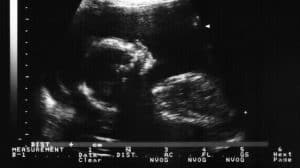The young pastor moved his family halfway across the United States because he believed he heard a call to help carve out a new church. Everyone was excited about the possibilities. In the joy and excitement of the moment, promises were made to the pastor.
After two years of joyful and purposeful partnership in the grand adventure of church planting, a pivotal player in the new church moved to another city. Then, one by one, other members slowly drifted away from the once-glorious mission. Financial resources began to dry up. The pastor and his wife felt abandoned. He had to get a job; in fact, he had to work two jobs. His wife went to work. They ended up declaring bankruptcy. The dream was dead.
He told me about the depth of betrayal which he felt . . . from people and from God. But, one day as he drove – “I can show you the spot in the road where it happened” – he suddenly saw a financial ledger sheet. He saw columns of numbers representing what was owed to him. But, he also noticed the ledger contained no columns of what he owed to others. Suddenly, his heart broke. He groaned out to God, “No one owes me anything. The ledger is clear.”
And, in that moment, he chose to forgive. Giving up all hope for a better past released him to walk into a new future.
Forgiveness as a Way of Life
It could accurately be said that forgiveness is the remission of debt. The debt is justly owed; payment can righteously be demanded. But, what happens when the one to whom it is owed chooses to forgive it?
For example, Jesus told a story of a king who forgave a debt to one of his servants who begged forgiveness. However, when that man encountered one of his debtors, he physically abused him until it was clear the debtor had no capacity to pay. At that point, the recently-forgiven man tossed his own debtor into prison (Matt. 18).
That man had received forgiveness but could not walk in it. He was too conscious of the ledger of columns showing what was owed to him.
In his book, Surprised by Hope, N. T. Wright says, “Forgiveness is a way of life, God’s way of life, God’s way to life; and if you close your heart to forgiveness, why, then, do you close your heart to forgiveness. . . If you lock up the piano because you don’t want to play to somebody else, how can God play to you?
“That is why we pray, ‘Forgive us our trespasses, as we forgive those who trespass against us.’ That isn’t a bargain we make with God. It’s a fact of human life. Not to forgive is to shut down a faculty in the innermost person, which happens to be the same faculty that can receive God’s forgiveness.”
How do we Forgive?
First, I think it is helpful to recognize that offences and injuries are always bottled in our past. So, forgiveness requires us to deal with our past – not our present or future. We have to let go of our past in order to fill up the present and bless the future. When we fail to deal properly with our past, we are like someone whose elastic belt is caught on a barbed wire fence; we can make very little forward progress until we unhook ourselves from our pain and injustice in our past.
Once we understand and settle that, we can walk into a forgiving way of life. Consider these specific components of walking in forgiveness:
1. Look at the larger picture
Bitterness and unforgiveness are almost always the results of boring into a very small perspective. Living in that smallness is trying to gaze at the great vista of your life through a tiny and very dirty fisheye lens.
For example, rather than focusing on your embarrassment at being fired, remember that your next job became a doorway to a brand new chapter of life. So, in fact, the humiliation was a gift from God to move you from one dead-end job to a place of purpose and fulfillment.
2. Celebrate your life
Do you understand that your life represents a multi-generational miracle? All your ancestors were protected from death until the lineage which produced you was passed on. That is an enormous gift.
So, to forgive is an act of celebrating that gift. To forgive is to boldly declare that your life does not belong to the offending party or incident in your past; it is God’s gift to you. Moreover, you choose the freedom to fill up your own life with the joy and purpose which God intended.
3. Release your need for justice
Forgiving is also the choice to surrender and reject your own view of, rights to and desire for “justice” (more accurately known as “revenge”).
4. Choose the Kingdom of God
Life without Christ consists of an impossible calculus of justice. It represents meticulous ledger sheets of obligations and endless partial payments. We can never tear up the note.
Jesus is the continental divide of history. He changed the calculus. He gave His Own life as “payment in full” for the crippling legacy of sin as well as for specific transgressions. Because of God’s abundant mercy, we are forgiven – released from – the obligation to pay our own account.
Dallas Willard has written, “Once we step into this kingdom and trust it, pity becomes the atmosphere in which we live…It is not psychologically possible for us really to know God’s pity for us and at the same time be hardhearted toward others. So we are ‘forgiving of others in the same manner as God forgives us.'”
Walking in forgiveness is choosing to live a large life. It rejects the suffocating smallness of the old calculus. It releases everyone (including ourselves) from our own claims. To forgive is to finally walk away from the miseries and mistakes of the past and onto the higher ground of a life so large that it could only be gift from God.



















